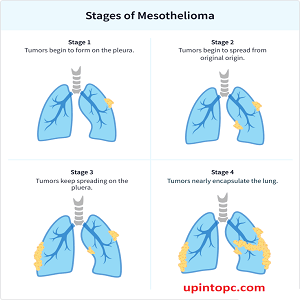Introduction
Mesothelioma is a devastating disease caused by exposure to asbestos, and unfortunately, it often leads to fatal outcomes. When a loved one passes away due to mesothelioma, it is not only emotionally challenging but also brings financial burdens to the surviving family members. In such cases, seeking a mesothelioma settlement after death becomes essential. This article aims to guide you through the process of pursuing a settlement to help alleviate the financial strain and provide justice for your loved one.
Table of Contents
| Heading |
|---|
| Understanding Mesothelioma Settlements |
| The Importance of Pursuing a Settlement |
| Factors Influencing Mesothelioma Settlements |
| Types of Mesothelioma Settlements |
| Filing a Mesothelioma Lawsuit After Death |
| Mesothelioma Settlements vs. Trust Funds |
| How Long Does the Settlement Process Take? |
| Calculating Compensation in Mesothelioma Settlements |
| Mesothelioma Settlement Tax Implications |
| Hiring a Mesothelioma Attorney |
| Frequently Asked Questions (FAQs) |
| Conclusion |
Understanding Mesothelioma Settlements
A mesothelioma settlement refers to an agreement reached between the plaintiff (the surviving family members) and the defendant (usually the asbestos manufacturer or employer) outside the courtroom. The settlement aims to provide financial compensation to the family members of the deceased, acknowledging the harm caused by asbestos exposure. By reaching a settlement, families can avoid a lengthy trial process and secure timely compensation.
The Importance of Pursuing a Settlement
When a loved one succumbs to mesothelioma, the financial aftermath can be overwhelming. Medical bills, funeral expenses, and the loss of the deceased’s income can leave families in dire straits. Pursuing a mesothelioma settlement after death can help alleviate the financial burden and provide some semblance of stability during this challenging time. Moreover, it holds the responsible party accountable for their negligence and helps prevent future asbestos-related harm.
Factors Influencing Mesothelioma Settlements
Several factors come into play when determining the value of a mesothelioma settlement after death. These include:
- Extent of Liability: The degree of responsibility of the defendants affects the settlement amount. Companies with a higher degree of negligence may be liable for larger compensatory sums.
- Economic Damages: Economic damages encompass medical expenses, funeral costs, lost income, and future financial losses resulting from the deceased’s absence.
- Non-Economic Damages: Non-economic damages include emotional distress, pain and suffering, loss of companionship, and the impact on the family’s quality of life.
- Jurisdiction: Different jurisdictions may have varying regulations and precedents, which can influence the settlement amount.
- Strength of Evidence: The strength of the evidence linking the defendant to the asbestos exposure and the deceased’s mesothelioma diagnosis can impact the settlement negotiation.
Types of Mesothelioma Settlements
There are two primary types of mesothelioma settlements available:
- Negotiated Settlements: In negotiated settlements, both parties (plaintiffs and defendants) reach an agreement on the compensation amount without going to trial. This option offers a faster resolution and avoids the uncertainties of a courtroom trial.
- Verdict/Settlement Hybrid: This type of settlement occurs when a trial is already underway, but the parties involved decide to reach a settlement before the jury delivers its verdict. It combines elements of both a verdict and a negotiated settlement.
Filing a Mesothelioma Lawsuit After Death
To pursue a mesothelioma settlement after the death of a loved one, it is crucial to follow these steps:
- Consult with an Attorney: Seek the guidance of an experienced mesothelioma attorney who specializes in asbestos litigation. They will evaluate your case, gather evidence, and provide legal advice.
- Establish the Legal Right to File: Determine if you have the legal standing to file a wrongful death claim on behalf of the deceased. This typically involves being a surviving spouse, child, or dependent.
- Gather Evidence: Collect all relevant documents, such as medical records, employment history, and proof of asbestos exposure. These pieces of evidence will strengthen your claim.
- Statute of Limitations: Be aware of the statute of limitations in your jurisdiction. This refers to the time limit within which a lawsuit must be filed. Failing to file within this timeframe may result in your claim being barred.
- Filing the Lawsuit: Your attorney will file the necessary legal documents, outlining the allegations and the damages sought. The lawsuit will be served to the defendants, who will then respond.
Mesothelioma Settlements vs. Trust Funds
In addition to pursuing a settlement, mesothelioma victims and their families may also be eligible for compensation from asbestos trust funds. These trust funds were established by bankrupt asbestos companies to ensure financial assistance for current and future claimants. While settlements provide compensation on an individual basis, trust funds offer collective compensation for numerous claimants.
How Long Does the Settlement Process Take?
The duration of the settlement process varies depending on the complexity of the case, the parties involved, and the court’s schedule. Typically, mesothelioma settlement negotiations can take several months to a year or more to reach a resolution. It is important to remain patient and trust the expertise of your attorney during this time.
Calculating Compensation in Mesothelioma Settlements
The calculation of compensation in mesothelioma settlements considers various factors, including:
- Medical expenses related to diagnosis, treatment, and care
- Funeral and burial costs
- Lost income and future earning capacity
- Pain and suffering endured by the deceased
- Loss of companionship and consortium
Each case is unique, and the final settlement amount will depend on the specific circumstances and available evidence.
Mesothelioma Settlement Tax Implications
Mesothelioma settlements may have tax implications, and it is essential to understand the potential tax consequences before accepting a settlement. Generally, compensation received for physical injuries or illnesses is non-taxable. However, specific aspects of the settlement, such as punitive damages or interest, may be subject to taxation. Consult with a tax professional to ensure compliance with relevant tax laws and regulations.
Hiring a Mesothelioma Attorney
When pursuing a mesothelioma settlement after death, it is crucial to work with an experienced mesothelioma attorney. They possess the necessary knowledge, expertise, and resources to handle asbestos-related cases. A skilled attorney will guide you through the legal process, negotiate on your behalf, and strive to secure the maximum compensation possible.
Frequently Asked Questions (FAQs)
Q: How long after a person’s death can a mesothelioma settlement be pursued?
After a person’s death due to mesothelioma, the surviving family members typically have a limited window of time to pursue a settlement. The exact timeframe varies depending on the jurisdiction and the statute of limitations in place. It is advisable to consult with an attorney promptly to ensure compliance with the applicable deadlines.
Q: Can I file a mesothelioma lawsuit after the death of my loved one?
Yes, it is possible to file a mesothelioma lawsuit after the death of a loved one. By doing so, you can seek compensation on behalf of the deceased for medical expenses, pain and suffering, lost income, and other damages. Consulting with a mesothelioma attorney will help you navigate the legal process and determine the best course of action.
Q: How is the settlement amount determined in mesothelioma cases?
The settlement amount in mesothelioma cases is determined by several factors, including the extent of liability, economic and non-economic damages, jurisdictional regulations, and the strength of evidence. Each case is unique, and an experienced attorney will assess these factors to negotiate a fair and just settlement on your behalf.
Q: Can I receive compensation from asbestos trust funds and pursue a settlement simultaneously?
Yes, it is possible to receive compensation from asbestos trust funds and pursue a mesothelioma settlement at the same time. Your attorney will help you explore all available avenues to maximize your compensation. However, the specific rules and procedures governing trust fund claims may vary, so it is crucial to work with a knowledgeable attorney.
Q: Are mesothelioma settlements taxable?
In general, compensation received for physical injuries or illnesses, such as mesothelioma, is non-taxable. However, specific components of a mesothelioma settlement, such as punitive damages or interest, may be subject to taxation. It is advisable to consult with a tax professional to understand the tax implications of your settlement.
Q: What should I consider when hiring a mesothelioma attorney?
When hiring a mesothelioma attorney, consider their experience in handling asbestos-related cases, their track record of success, their knowledge of relevant laws and regulations, and their ability to communicate effectively. A reputable attorney will provide compassionate guidance and fight for your rights throughout the legal process.
Conclusion
Losing a loved one to mesothelioma is a tragic event, but pursuing a mesothelioma settlement after death can provide financial support and a sense of justice. By understanding the process, working with an experienced attorney, and exploring all available options, you can seek compensation for the damages caused by asbestos exposure. Remember, consultation with a mesothelioma attorney is crucial to navigate the legal complexities and ensure your rights are protected.




